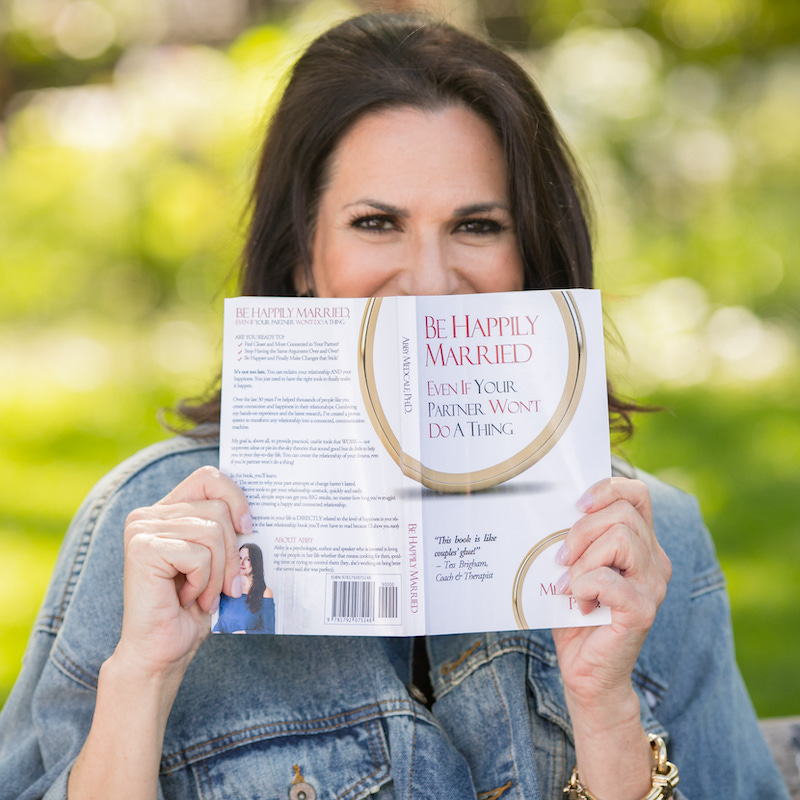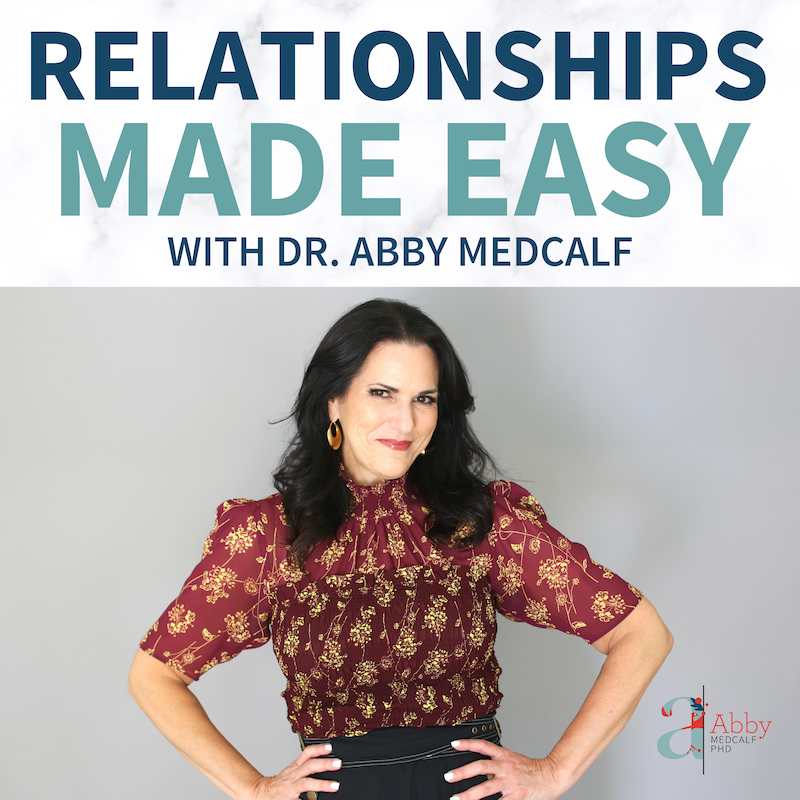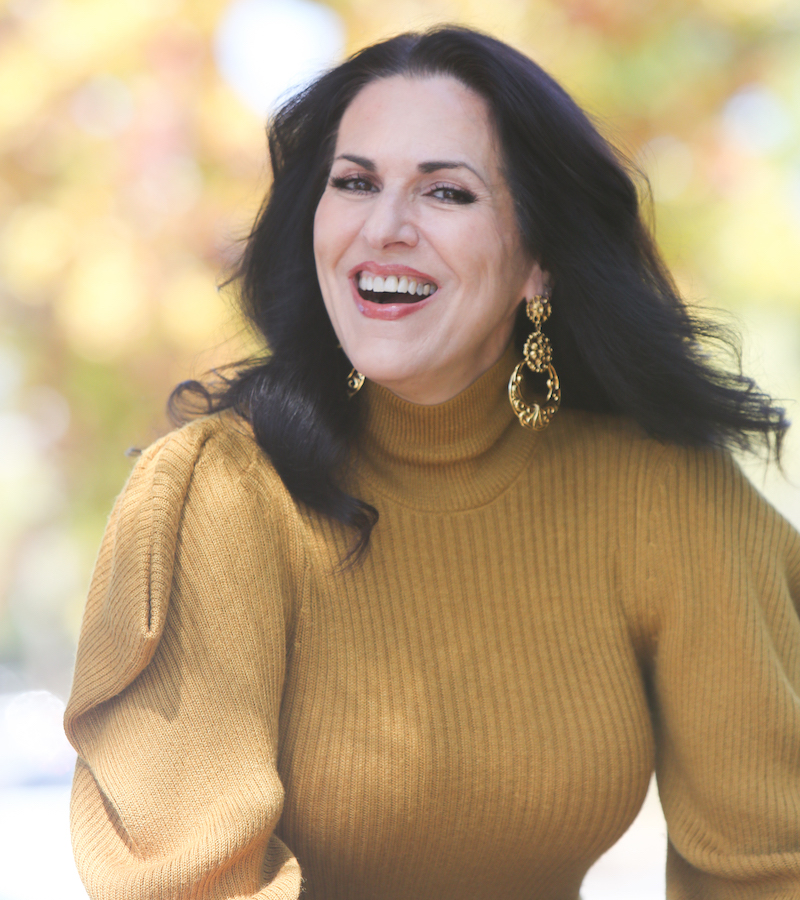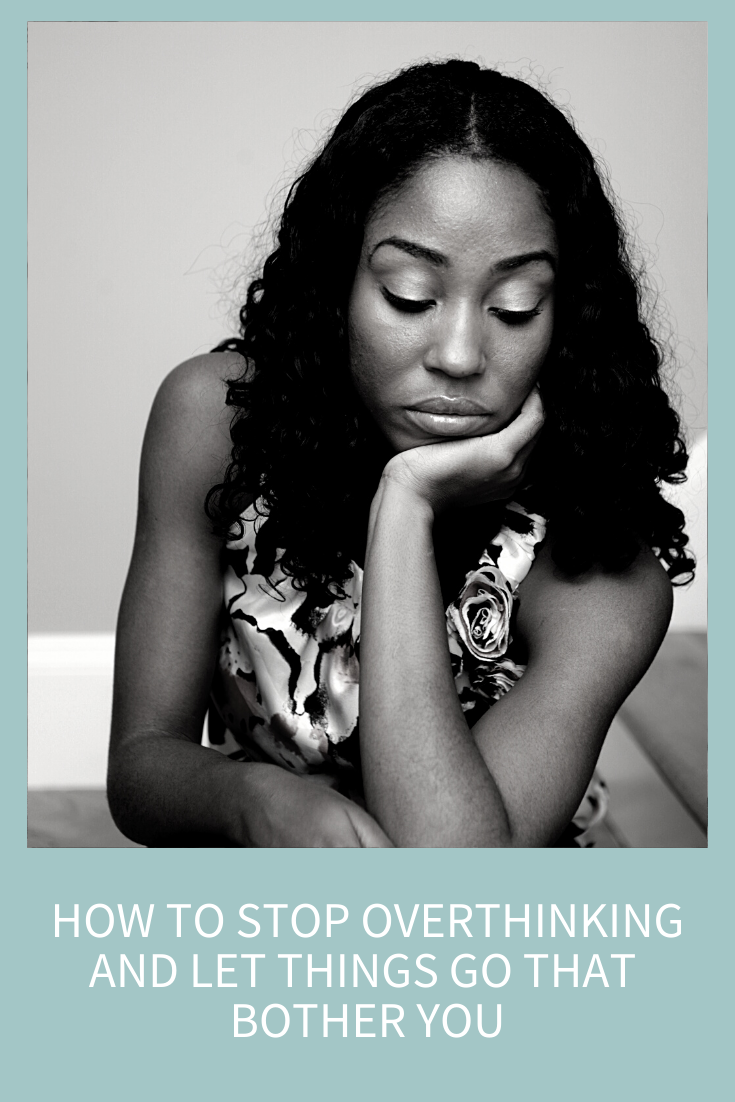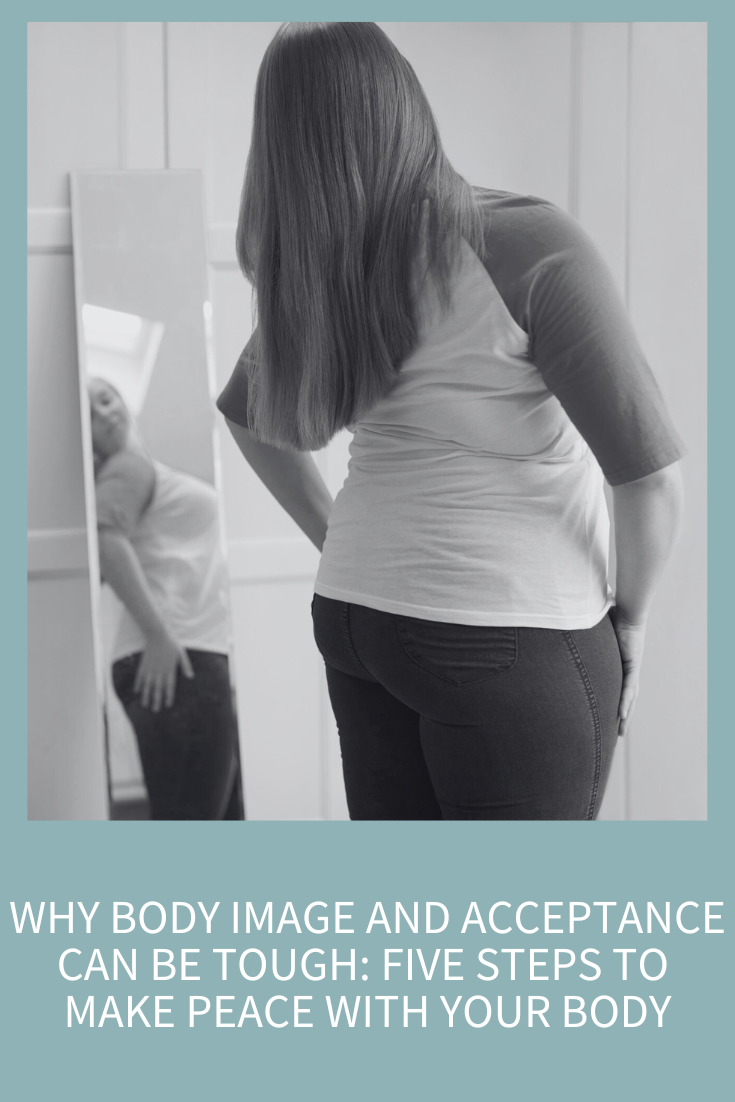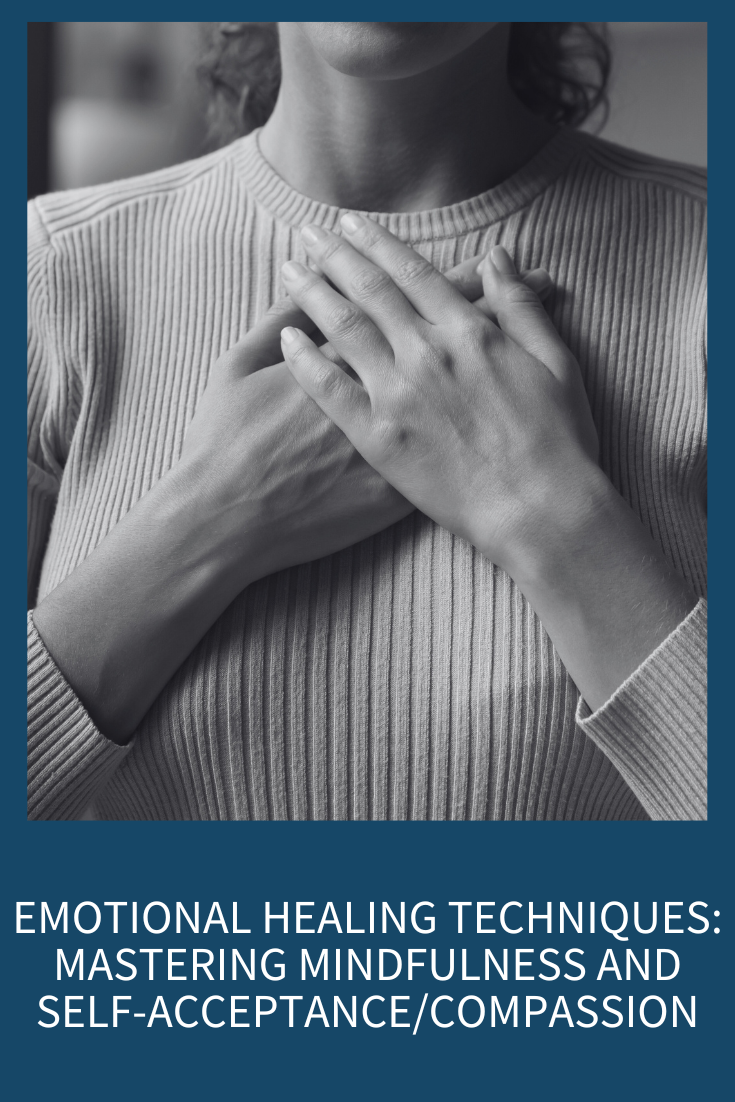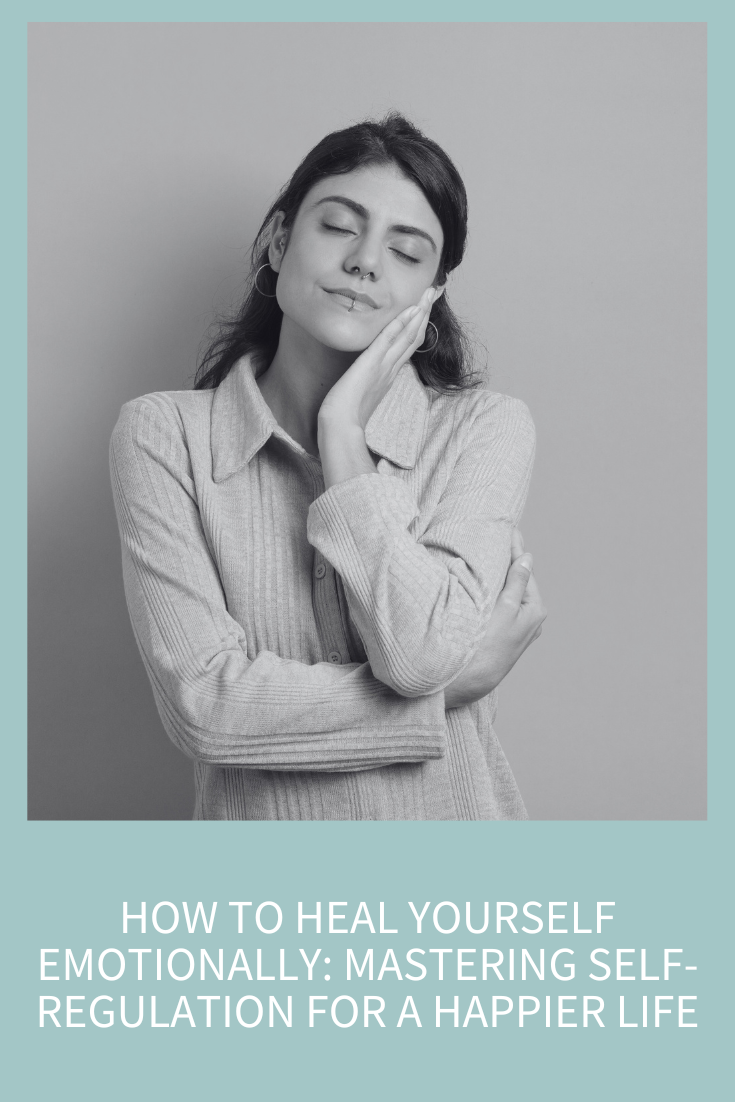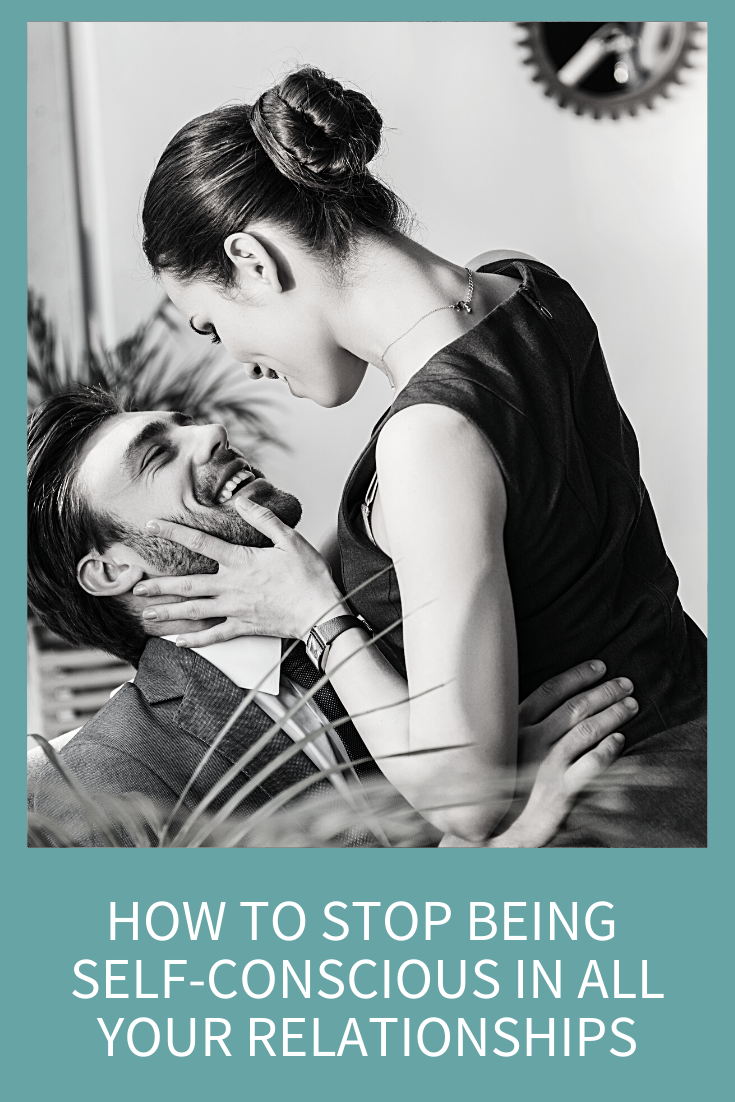
We’ve all been there: you said or did something and suddenly your cheeks are burning and you have to fight the urge to run and hide under the covers. You feel like all eyes are on you and that you’re being harshly judged. You feel embarrassed, awkward and maybe even ashamed. Being self-conscious sucks not just because you feel those feelings, but because it limits your ability to feel happiness or contentment in your moments, it stops you from fully expressing yourself and it damages your relationships. So how do you stop being self-conscious in your relationships? Today you’re going to learn how your brain tricks you into being self-conscious and my top five tips for making self-consciousness so 2021!
9-minute read.
Prefer to listen to the podcast? Click here.
Self-consciousness sucks. It pulls us out of our moments and it does major damage to our relationships. At work, you don’t speak up because you’re worried people will laugh at your idea. You don’t have sex with your husband because you don’t like your body. You listen to your parents go on and on about your brother and his great career and feel ashamed that you haven’t figured out your own passion yet.
You feel less than. Less than others and less than yourself. You feel like all eyes are on the choices you’re making, the things you’re doing or how you look. This, in turn, curtails or changes your behavior. Your thoughts run wild (and not in a good way) and you can end up full of shame and self-loathing. Yuck. So how do you stop being self-conscious and and stop feeling insecure?
Why Am I Feeling Self-Conscious?
You’re self-conscious mostly due to something we psychologists call the Spotlight Effect. In technical terms, the Spotlight Effect is a type of cognitive bias. A cognitive bias is basically an unconscious, systemic error in your thinking when your brain is processing and interpreting the information coming in. I’ve talked about the confirmation bias quite a bit, but today we’re focusing on this Spotlight Effect which causes you to overestimate how much other people are noticing or observing you.
In regular terms it means you think everyone is watching you and caring about what you’re doing WAY more than they actually are. Basically, since we only see things from our own point of view all day, we’re lousy at accurately judging what anyone else if thinking.
And if that’s not bad enough, a cornerstone of the Spotlight Effect is another cognitive bias called the Illusion of Transparency. This is another unconscious trick of the mind that makes us greatly overestimate how well other people can read our emotions. So, even though you might intellectually know that other people aren’t really focused on you and that they certainly don’t have the power to read your thoughts and emotions, you really don’t believe it.
In the end, you think that other people have the same perspective as you do and that they noticed that stain on your shirt you’ve been trying to hide all day (and that they’re laughing at you behind your back) and you also believe that they can see read your embarrassment and nervousness so they’re laughing even harder as they all get on a Zoom tonight with the only topic being to talk about you.
So, before I even get to my five tips, here’s a bonus one: In any situation in which you’re feeling self-conscious, remember that you’re definitely overestimating how much others are watching or caring. They, in fact, likely don’t care and likely won’t’ remember whatever it is that you’re self-conscious about! Just remembering this can help you step back from the ledge, take a breath and move on from whatever crazy thought has taken up residency.
Here are my five tips to stop being self-conscious in all your relationships.
Tip #1: Disagree with Yourself: Doubt Your Doubts
If you want to stop being self-conscious, don’t believe everything you think. I thought I’d marry Tito Jackson of the Jackson Five when I was 10 and that didn’t happen. I had posters of him on my wall, I sent him fan mail and I imagined us being together forever. Well, I need to tell you that I never got so much as a phone call.
Yes. We all have lots of thoughts, both good and bad, that don’t happen no matter how much we believe!
And here’s the kicker: you don’t believe the good things people actually say out loud to you, so why are you believing the self-doubting and nasty things you say to yourself?
This habit you have of believing anything you think is just that, a negative habit. And it’s one that needs to be broken.
To break a habit, you’ve got to go after it as soon as you think it (or as soon as you notice it). So, really my first tip should be working on your daily mindfulness, but I feel like that’s a given at this point in our relationship! If you haven’t yet, you need to download my free Mindfulness Starter Kit and check out how to make mindfulness a habit.
But back to doubting your doubts. It’s time to actively dispute what you’re thinking and it can be as simple as, “Hey, Abby taught me about the Spotlight Effect so I know that I’m overreacting here. What else could I say to myself about what’s happening?” We also call this cognitive reframing. You can also learn a super simple tool called the ABCD format to dispute those negative thoughts effectively.
Here are three questions you can ask yourself whenever you feel self-conscious:
- Just because I’m thinking it, does that mean it’s true?
- Even if it is true, is it helpful?
- What else could be true about what I’m thinking?
Tip #2: It’s Not Self-Love, It’s Self-Acceptance… (This is Key to Stop Being Self-Conscious!)
So, I’ve got a lot of ass. Yup, I said it. God gave me a certain shape and I used to be super self-conscious about it. Sadly, I missed the Marilyn Monroe time by just a smidgen and, instead, grew up with Twiggy as a role model. Later, along came Kate Moss and heroin chic (really people?) and an hourglass shape was NOT on the menu. I did my best to feel good in my body despite not being what was deemed desirable in the media but was always a little self-conscious about my butt. And then along came Jennifer Lopez. Suddenly, there was a storm of junk in the trunk being not only seen but revered! From Beyonce to Kim Kardashian, I was finally seeing my body type in magazines. And (I’m a little ashamed to say since it seems I should have been above this somehow), I was proud of my body, bigger booty and all.
I look back now and realize that I could have and should have been proud of my strong, beautiful body all along. I’m faced with new challenges now as I age and find myself not smiling fully (oh, the yellowing teeth I need to get fixed) or not wanting the camera too close (oh my gosh, all those lines around my mouth!) or making all kinds of noises when I get out of a chair. And I’ve tried very hard to learn from lessons past and to just fully accept myself.
I make mistakes, I’m a flawed human, I say stupid shit and I’m an asshole (not purposefully, but still) on occasion. It just is. I’m also loving, generous and kind. Self-acceptance is at the core of self-love. You can’t really love yourself if you don’t really accept yourself, flaws and all. And I’m not just talking about accepting yourself despite x, y or z. I’m talking about accepting all of it, as is. You don’t need to make excuses or justifications.
Self-acceptance doesn’t mean we don’t want to continually grow and change, but it does mean that we accept ourselves for where we are right now.
For me, at the core of self-acceptance has been self-compassion. You can start with a loving-kindness meditation that’s been shown through research to increase self-acceptance or you can check out all the tips I’ve got on creating more self-compassion right here:
Tip #3: Treat Yourself Like Your Best Friend
One of the proven methods of increasing self-compassion and lessening self-consciousness (by reducing the influence of the Spotlight Effect) is to use a self-distancing technique. There are many of these types of techniques that help you create a psychological self-distance but the one I talk about the most is treating yourself like you would treat your best friend.
In other words, if your friend came to you with any of the crazy things you’re thinking about yourself, what would you say to them? I know you wouldn’t be telling them they’re right and that they’re a loser! No. You’d be offering a different perspective and a different point of view on what they’re thinking; and that’s exactly what you want to do with yourself in order to stop being self-conscious.
Tip #4: Focus on Your Breathing
Feeling self-conscious is a fear-based emotion. It’s basically your anxiety lying to you. When we feel a fear-based emotion, there are certain centers of our brain and nervous system that are triggered, which makes it hard or even impossible to think clearly and rationally.
Research has shown that each emotion you have is linked to a specific pattern of breathing. You already know this is true because you’ve had times when you’ve felt really angry or highly anxious and noticed that your breathing was shallow or fast. When you’re really relaxed, your breathing is slow. When you’re crying or laughing it might be hard to catch your breath. When you’re scared, you might hold your breath. But the super cool, awesome, amazing part (yes, that’s a lot of adjectives but I’m trying to get your attention here) is that by changing the way you breathe, you can change the way you feel and start to access that thinking part of your brain again.
Focusing on your breathing is a great tool in your quest to stop being self-conscious.
By simply taking some slow, long breaths in and out, you can start to change your brain’s chemistry and relax. This, in turn, helps you think better so you can remember all those great tools Abby taught you.
The amazing author and researcher, Emma Seppälä has an awesome infographic on the scientific benefits of breathing for greater health and happiness and it includes a simple breathing practice that you can try in your effort to stop being self-conscious.
Tip #5: Be Like Nike and Just Do It!
In the end, one of the most effective strategies when you’re feeling self-conscious is to rip off the band aid! Thinking about something over and over will just get you more and more self-conscious, anxious and depressed!
There comes a time when you need to tell your partner how you really feel (lovingly of course), raise your hand in class, share your new idea at your team meeting or shuck off your cover-up and say “fuck it” as you rock your bikini-wearing body! Doing the thing means you’re breaking a pattern. The more you do the thing, the more you’ll create new patterns, which we call habits.
When you do the thing, you’ll see it’s not as bad as you thought, you’ll start to build your self-confidence and the old feelings of self-consciousness will start to slowly fade and eventually disappear to the point where you’re saying, “I can’t believe I used to be self-conscious about that.”
All these tools will help you stop being self-conscious all the time!
Resources
How to Make Mindfulness a Habit
How to Stop Overthinking and Let Things Go That Bother You
Change How You Feel with This Easy Tool
Loving Kindness Guided Meditation
Is Self-Compassion the Secret to a Happy Relationship?
Why Your Lizard Brain is Keeping You Stuck and Specific Tools to Start Connecting
3 Tips to Calm Yourself in Seconds
Research:

